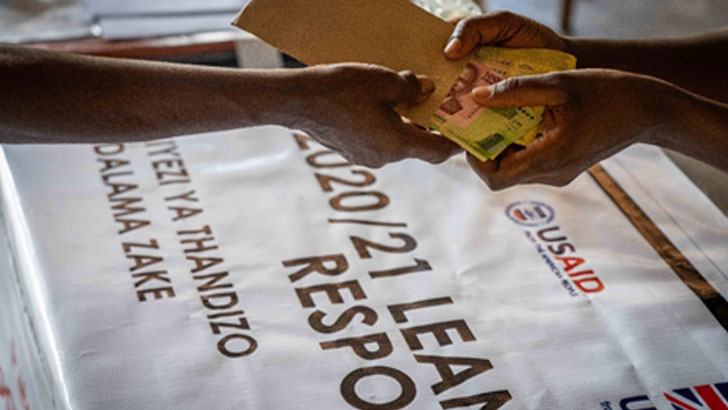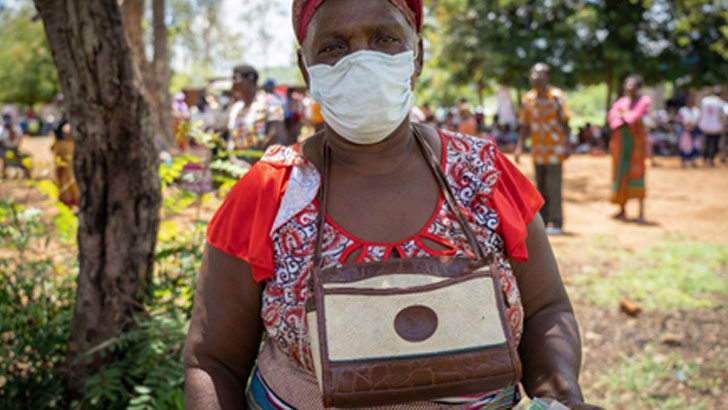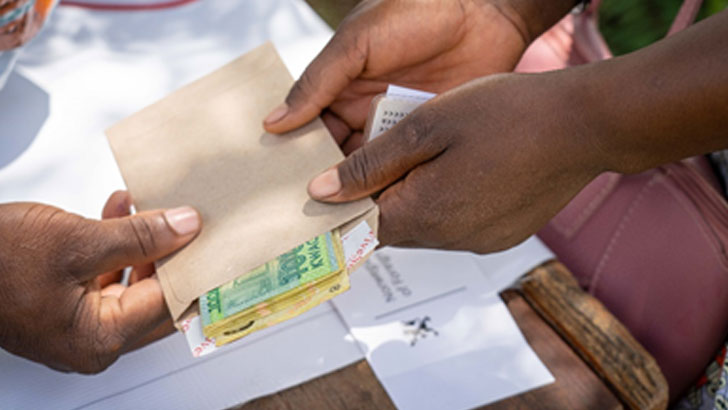Fighting hunger amid a pandemic
Tawonga Ng’oma, UN World Food Programme

Cash transfers being distritbuted for the Lean Season Response in Zomba. Photo credit: WFP/Tawonga Ng’oma
75 year-old Emme Kanama of Zomba district is one among many people receiving support during this Lean Season Response. In March 2020, heavy rains washed away her crop field leaving her family including six grandchildren with no food to last the entire year.

Emme Kanama, a beneficiary of the Lean Season Response in Zomba. Photo credit: WFP/Tawonga Ng’oma
With the MK 23,100 cash transfer she received, Emme bought maize, beans and oil to feed her family for a month. “During this time, its hard to even find piecework to make money to buy food and worse still, I am unable to work full-time as I have to take care of my grandchildren.”
The Government of Malawi, together with the United Nations World Food Programme (WFP) and Development Partners have teamed up to provide food and cash assistance to people facing severe food insecurity in Malawi during the ongoing 2020/2021 Lean Season.
“The increasing risk of climatic shocks worsens a vicious cycle of food insecurity,” says James Chiusiwa, Commissioner for Disaster Management Affairs. “The Government is committed to help vulnerable households mitigate, manage and recover from the impacts of these shocks.”
The Malawi Vulnerability Assessment Committee (MVAC) determined that 2.6 million food insecure people require emergency food assistance during the 2020/2021 Lean Season. This population includes households from rural areas experiencing localized low levels of crop production, as well as people in urban areas who have experienced loss of income due to the economic effects of COVID-19 pandemic.

With support from the Government of Norway, cash transfers are being distributed in urban areas to adress the economic effects of COVID-19. Photo credit: WFP/ Tawonga Ng’oma
“WFP is grateful to donors for their support to the response. The support we received is helping the Government of Malawi to reach some of the country’s most vulnerable people, who risk slipping further into hunger,” said Benoit Thiry, WFP Malawi Country Director.
The Government has so far allocated 30,000 metric tonnes of maize from the Strategic Grain Reserve for the programme, while WFP is distributing cash so that people can buy food in the local markets.
With resources mobilised both by the Government of Malawi and Donors – the Joint SDG Fund, as well as the Governments of Norway, United Kingdom and United States of America – the response started in December 2020 and runs until March 2021. DoDMA is targeting all 28 districts including four urban areas of the country with WFP currently supporting provision of assistance in 12 districts, leveraging the social protection system to the extent possible.
Several COVID-19 prevention measures have been taken to minimize the risk of exposure of personnel, partners, and beneficiaries during food and cash distributions. These measures include conducting staggered distributions, having hygiene and sanitation measures in place during distributions, and leading sensitization campaigns throughout distributions.





